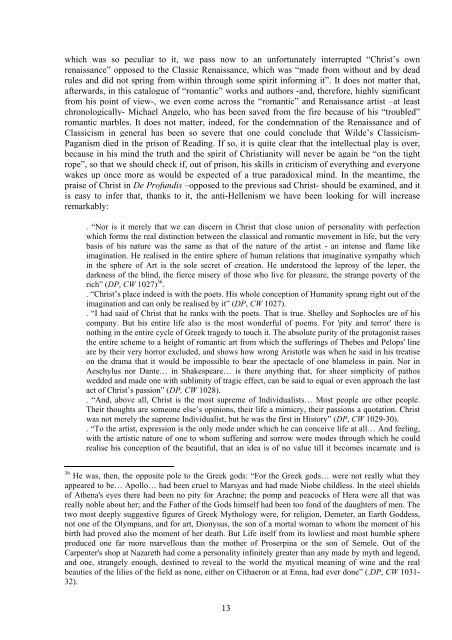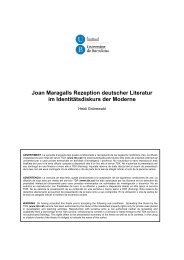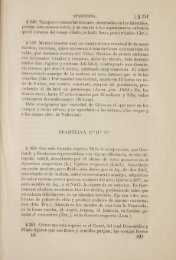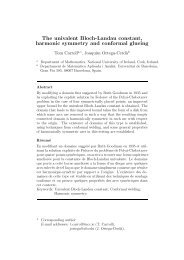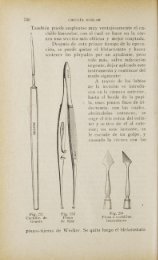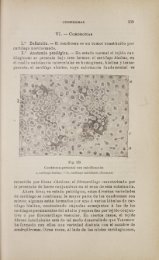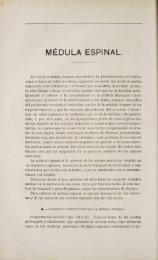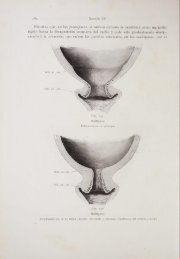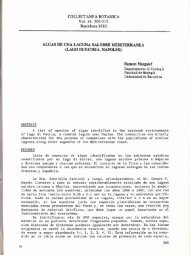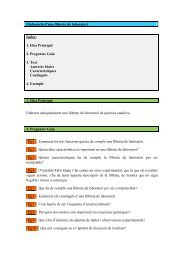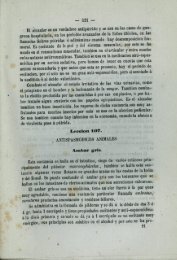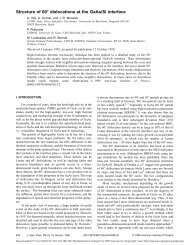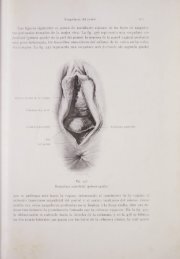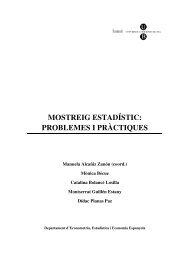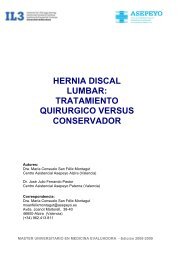Wilde Parsa ang_12080.pdf - Dipòsit Digital de la UB - Universitat ...
Wilde Parsa ang_12080.pdf - Dipòsit Digital de la UB - Universitat ...
Wilde Parsa ang_12080.pdf - Dipòsit Digital de la UB - Universitat ...
Create successful ePaper yourself
Turn your PDF publications into a flip-book with our unique Google optimized e-Paper software.
which was so peculiar to it, we pass now to an unfortunately interrupted “Christ’s own<br />
renaissance” opposed to the C<strong>la</strong>ssic Renaissance, which was “ma<strong>de</strong> from without and by <strong>de</strong>ad<br />
rules and did not spring from within through some spirit informing it”. It does not matter that,<br />
afterwards, in this catalogue of “romantic” works and authors -and, therefore, highly significant<br />
from his point of view-, we even come across the “romantic” and Renaissance artist –at least<br />
chronologically- Michael Angelo, who has been saved from the fire because of his “troubled”<br />
romantic marbles. It does not matter, in<strong>de</strong>ed, for the con<strong>de</strong>mnation of the Renaissance and of<br />
C<strong>la</strong>ssicism in general has been so severe that one could conclu<strong>de</strong> that <strong>Wil<strong>de</strong></strong>’s C<strong>la</strong>ssicism-<br />
Paganism died in the prison of Reading. If so, it is quite clear that the intellectual p<strong>la</strong>y is over,<br />
because in his mind the truth and the spirit of Christianity will never be again be “on the tight<br />
rope”, so that we should check if, out of prison, his skills in criticism of everything and everyone<br />
wakes up once more as would be expected of a true paradoxical mind. In the meantime, the<br />
praise of Christ in De Profundis –opposed to the previous sad Christ- should be examined, and it<br />
is easy to infer that, thanks to it, the anti-Hellenism we have been looking for will increase<br />
remarkably:<br />
. “Nor is it merely that we can discern in Christ that close union of personality with perfection<br />
which forms the real distinction between the c<strong>la</strong>ssical and romantic movement in life, but the very<br />
basis of his nature was the same as that of the nature of the artist - an intense and f<strong>la</strong>me like<br />
imagination. He realised in the entire sphere of human re<strong>la</strong>tions that imaginative sympathy which<br />
in the sphere of Art is the sole secret of creation. He un<strong>de</strong>rstood the leprosy of the leper, the<br />
darkness of the blind, the fierce misery of those who live for pleasure, the str<strong>ang</strong>e poverty of the<br />
rich” (DP, CW 1027) 36 .<br />
. “Christ’s p<strong>la</strong>ce in<strong>de</strong>ed is with the poets. His whole conception of Humanity spr<strong>ang</strong> right out of the<br />
imagination and can only be realised by it” (DP, CW 1027).<br />
. “I had said of Christ that he ranks with the poets. That is true. Shelley and Sophocles are of his<br />
company. But his entire life also is the most won<strong>de</strong>rful of poems. For 'pity and terror' there is<br />
nothing in the entire cycle of Greek tragedy to touch it. The absolute purity of the protagonist raises<br />
the entire scheme to a height of romantic art from which the sufferings of Thebes and Pelops' line<br />
are by their very horror exclu<strong>de</strong>d, and shows how wrong Aristotle was when he said in his treatise<br />
on the drama that it would be impossible to bear the spectacle of one b<strong>la</strong>meless in pain. Nor in<br />
Aeschylus nor Dante… in Shakespeare… is there anything that, for sheer simplicity of pathos<br />
wed<strong>de</strong>d and ma<strong>de</strong> one with sublimity of tragic effect, can be said to equal or even approach the <strong>la</strong>st<br />
act of Christ’s passion” (DP, CW 1028).<br />
. “And, above all, Christ is the most supreme of Individualists… Most people are other people.<br />
Their thoughts are someone else’s opinions, their life a mimicry, their passions a quotation. Christ<br />
was not merely the supreme Individualist, but he was the first in History” (DP, CW 1029-30).<br />
. “To the artist, expression is the only mo<strong>de</strong> un<strong>de</strong>r which he can conceive life at all… And feeling,<br />
with the artistic nature of one to whom suffering and sorrow were mo<strong>de</strong>s through which he could<br />
realise his conception of the beautiful, that an i<strong>de</strong>a is of no value till it becomes incarnate and is<br />
36 He was, then, the opposite pole to the Greek gods: “For the Greek gods… were not really what they<br />
appeared to be… Apollo… had been cruel to Marsyas and had ma<strong>de</strong> Niobe childless. In the steel shields<br />
of Athena's eyes there had been no pity for Arachne; the pomp and peacocks of Hera were all that was<br />
really noble about her; and the Father of the Gods himself had been too fond of the daughters of men. The<br />
two most <strong>de</strong>eply suggestive figures of Greek Mythology were, for religion, Demeter, an Earth God<strong>de</strong>ss,<br />
not one of the Olympians, and for art, Dionysus, the son of a mortal woman to whom the moment of his<br />
birth had proved also the moment of her <strong>de</strong>ath. But Life itself from its lowliest and most humble sphere<br />
produced one far more marvellous than the mother of Proserpina or the son of Semele. Out of the<br />
Carpenter's shop at Nazareth had come a personality infinitely greater than any ma<strong>de</strong> by myth and legend,<br />
and one, str<strong>ang</strong>ely enough, <strong>de</strong>stined to reveal to the world the mystical meaning of wine and the real<br />
beauties of the lilies of the field as none, either on Cithaeron or at Enna, had ever done” (.DP, CW 1031-<br />
32).<br />
13


